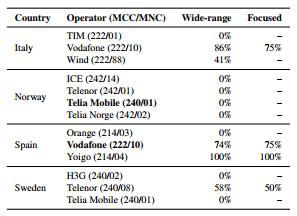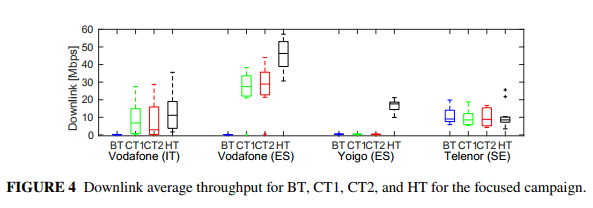ISPs Block BitTorrent Traffic Despite EU Net Neutrality Regulation

When the European Parliament adopted Europe’s first net neutrality rules in 2015, some people believed that this would put an end to BitTorrent blocking
The rules, which were included in the Telecoms Single Market (TSM) regulation, prevent ISPs from outright discrimination between different types of traffic.
While there has been little research on the topic thus far, a new paper published by Italian researchers shows that several ISPs continue to interfere with BitTorrent transfers.
For the study, Valerio Luconi and his colleagues used a specialized tool called NeutMon to measure traffic flows on several mobile ISP networks. Specifically, they checked whether BitTorrent traffic is treated differently than traffic that appears the same, but isn’t using the BitTorrent protocol.
These traffic measurements were taken throughout the day and in a follow-up measurement, were compared to regular traffic as well. The results show that despite the EU’s net neutrality rules, BitTorrent throttling is still ongoing.
The research started with a broad measurement targeting all of the nine ISPs that were available through the NeutMon tool, some in multiple countries. They then measured the throughput of BitTorrent traffic versus the control group, to see if there are any changes.

The results show that three of the nine ISPs interfered with BitTorrent traffic flowing through the standard port 6881.
This wasn’t the case on all tests, so the researchers selected these providers for a more thorough follow-up run.
This “focused” test looked at the average download speeds for the following traffic types, which were (except HTTP) all similar in respect of types of packets and size.
–BT: BitTorrent traffic on port 6881, or a random high number if that fails
–CT1: Control traffic on port 6881
–CT2: Control traffic on a random port higher than 50000
–HT: HTTP request of a large file
After testing the three possibly non-neutral ISPs the researchers found that the earlier interference that was found at the Swedish ISP Telenor could not be replicated. However, on Vodafone (Spain/Italy) and Yoigo (Spain), something was amiss, as the figure below also shows.

The researchers found that Vodafone always blocked BitTorrent traffic on port 6881, except between 1 AM to 5 AM. However, BitTorrent traffic was blocked on higher ports as well. This led to the suspicion that it takes place through deep packet inspection.
“We can in general confirm that classification is done via deep packet inspection, as only BT is always throttled with a very low throughput, both when using port 6881 and when using a random high port,” the researchers write.
The control traffic performs much better, although there is occasional interference there as well. According to the researchers, this might be because this traffic is sporadically misidentified as BitTorrent traffic since it shares the same characteristics. HTTP traffic was, as expected, allowed to flow freely.
On Yoigo there’s also non-neutral activity, according to the findings. Interestingly, much of the control traffic was throttled as well. According to the researchers, this could be due to port blocking.
“From the obtained results we can confirm Yoigo’s non-neutral behavior too, but with quite different modalities,” they write.
“BT, CT1, and CT2 are capped to a very low throughput, whereas HT obtains good performance. These results seem also to confirm that traffic is shaped on a per-port basis.”
BitTorrent was certainly treated differently from the two control conditions though. The researchers report that Yoigo always shut down BitTorrent traffic after a short time, which meant that none of the tests completed. This suggests that the ISP uses multiple blocking measures.
The article concludes that while there’s no blocking on most mobile ISPs, some clearly interfere with traffic in a non-neutral way. They argue that it may be time to introduce real-world monitoring systems, to check whether ISPs play by the rules or not.
That brings us to another issue, which is not mentioned in the article. While the EU has indeed adopted net neutrality rules, it’s up for debate whether BitTorrent blocking is actually prohibited.
ISPs are arguably still allowed to throttle specific categories for “reasonable” network management purposes, as long at it improves the overall “transmission quality.” That would not be a far-fetched argument since torrent traffic can be quite demanding on a network.
—
The paper titled “Net Neutrality in Mobile Broadband: a European Study Based on a Large Scale Testbed” is accepted for publication in the Internet Technology Letters.
Source: TF, for the latest info on copyright, file-sharing, torrent sites and more. We also have VPN reviews, discounts, offers and coupons.




Leave a Reply
Want to join the discussion?Feel free to contribute!